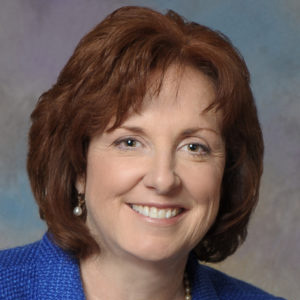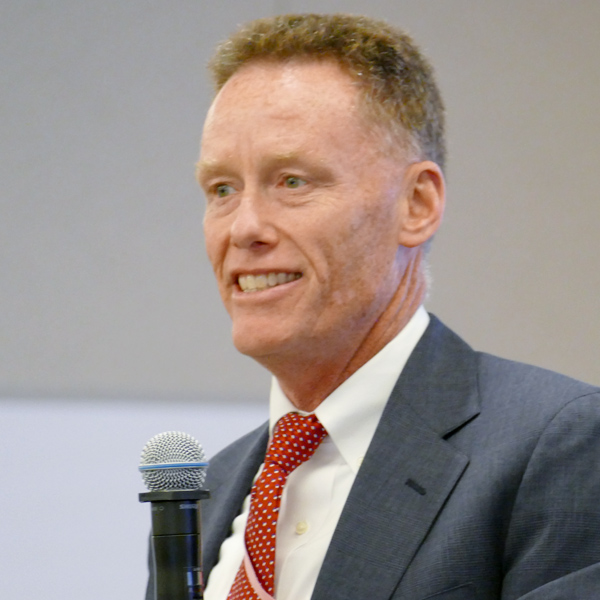The final standards for greenhouse gas emissions from heavy-duty trucks, issued by EPA on March 29, attempt to strike a balance between environmental concerns about diesel fumes the trucks spew into the air and the economic and physical logistics of building out a zero-emission fleet and charging network.
Aimed at cutting 1 billion tons of GHG emissions per year — and saving $3.5 billion for truckers — the rules provide a longer runway for manufacturers to meet emission-reduction targets that are initially less stringent than the proposed standards EPA issued in April 2023. This slower phase-in is offset by tougher goals in 2031 and 2032, in many cases stricter than initially proposed.
The standards for three of the heaviest heavy-duty vehicles will go into effect on a staggered schedule. For day-cab “tractors” ― that is, semis without a sleeping compartment ― compliance will begin in 2028. The start date for heavy “vocational” vehicles ― a category covering a range of construction, maintenance and other work vehicles ― is in 2029; for tractors with sleeping compartments, it is in 2030.
“In consideration of the opposing concerns raised by commenters, EPA believes it is critical to balance the public health and welfare need for GHG emissions reductions over the long term with the time needed for product development and manufacturing as well as infrastructure development in the near term,” the rule says.
These changes notwithstanding, EPA Administrator Michael Regan hailed the final rules as “the strongest greenhouse gas standards for heavy-duty vehicles in history.”
Speaking at a prerelease press call, Regan framed the standards as tackling heavy-duty trucking’s impacts on both climate change and public health. Transportation accounts for 29% of all U.S. emissions — more than any other sector — and heavy-duty trucks make up about a quarter of that total, according to EPA.
“An estimated 72 million Americans, often people of color or people with lower incomes, live near freight truck routes,” Regan said. “These communities are disproportionately exposed to the pollution from heavy-duty vehicles, resulting in higher rates of respiratory and cardiovascular illnesses and even premature death.”
Both Regan and National Climate Adviser Ali Zaidi also promoted the rules as another piece of the Biden administration’s work on decarbonizing transportation and the economy, while boosting investment in the automotive industry and creating jobs. The new rules are part of EPA’s Clean Trucks Plan, which includes rules, released in 2023, limiting nitrogen oxide emissions from heavy-duty trucks, Regan said.
Zaidi pointed to the tax credits supporting clean trucks in the Inflation Reduction Act: $40,000 for zero-emission trucks and up to $100,000 for charging and refueling stations. He also cited the recent launch of the administration’s National Zero-Emission Freight Corridor Strategy, which first will develop charging hubs and then corridors to accelerate the buildout of a zero-emission freight network nationwide. (See Feds Announce National Strategy for Zero-Emission Freight.)
EPA is estimating that operational savings for heavy-duty zero-emission vehicle (ZEVs) ― their total cost of ownership ― will offset their higher upfront costs, which are potentially more than twice the cost of a comparable diesel truck with an internal combustion engine (ICE).
With EPA’s estimated $3.5 billion in savings for operators, payback on heavy-duty electric vehicles could happen within two to five years, depending on the type of truck. By 2032, when the standards are fully phased in, individual owners and drivers could be saving between $3,700 and $10,500 annually on fuel and maintenance, depending on vehicle type.
EPA has also committed to ongoing consultation with stakeholders as the standards are implemented, “to learn from their experiences and gather relevant information and data,” according to the announcement. Based on stakeholder input, EPA may issue periodic reports or guidelines or consider modifications to the standards to be made through a future rule.
“What we are excited about is the ability to collect specific data from various entities, whether that be community groups, environmental groups or the industry … to help accentuate and possibly give us new data and information we may not have considered,” Regan said.
What’s in the Mix?
Decoding the 1,155 pages of the EPA’s final rule is more than a little complicated. While the industry classifies trucks by weight, EPA has broken down heavy-duty trucks into more detailed categories and subcategories ― vocational and tractor; low and high roof; light, medium and heavy heavy-duty.
The emission standards themselves are expressed in grams per ton-mile, agency jargon that does not easily translate into pounds of tailpipe carbon dioxide emissions.
Getting a handle on the scope of the challenge ahead requires some digging. Trucking industry sources count about 13 million registered trucks on roads nationwide, 2.9 million of which are semis. As of June 2023, only about 17,500 were ZEVs, and the vast majority ― 14,000 ― were medium-duty cargo vans, the nonprofit CALSTART reported.
The Department of Energy’s Alternative Fueling Station Locator shows the U.S. with a total of 15 DC fast-charging stations, with a total of 26 charging ports, available for the largest types of HD trucks, and most of those stations are privately owned.
EPA’s last GHG standards for HD trucks were set in 2016. When fully phased-in, the new rules could slash emissions by 25 to 60% below the 2016 standards depending on vehicle type, according to an EPA fact sheet.
Despite Republican complaints that EPA is trying to force Americans into EVs, the new standards do not require truck manufacturers to make — or truck drivers to buy — ZEVs. Regan has stressed that the new rules are performance-based and “technology-neutral, allowing each manufacturer to choose what set of emission-control technologies works best for them, whether that’s advanced internal combustion engines, hybrid vehicles, plug-in hybrid electric vehicles, battery electric trucks [or] hydrogen fuel cell vehicles.”
The rules offer two scenarios of how different mixes of vehicles might be used to meet the standards and how percentages of ZEVs versus diesel trucks might change through 2032. Generally, the heavier the truck, the lower the percentage of ZEVs being predicted.
In a scenario with only ZEVs and ICEs, light vocationals start with a mix of 17% ZEVs and 83% ICEs in 2027 but reach 60% and 40%, respectively, by 2032. A second scenario replaces ZEVs with a mix of hybrids, plug-in hybrids, and natural gas and hydrogen-powered ICEs. In this case, ICEs go from 33% in 2027 to just 1% in 2032, while hybrids go from 52% in 2027 to 40% in 2032, and hydrogen ICEs from zero to 24%.
For long-haul trucks, the rule predicts 25% ZEVs versus 75% ICEs in 2032. In the non-ZEV scenario, ICEs account for 64% of the fleet by 2032, with hybrids at 10%, natural gas at 5% and hydrogen ICEs at 17%.
However, the potential impact of the EPA standards is only one factor in a broader landscape of policy and market forces that could drive accelerated adoption of heavy-duty ZEVs over the next decade and beyond.
California’s Advanced Clean Trucks (ACT) rule, now adopted by 11 other states, provides a different approach, requiring manufacturers to increase their percentages of ZEVs offered for sale in the state each year through 2035, in some cases to higher levels than those projected by EPA.
By 2032, ACT calls for 40% ZEVs for lighter medium-duty vehicles, such as cargo and passenger vans weighing between 8,501 pounds and 14,000 pounds, rising to 55% by 2035. The goals for other medium- and heavy-duty vehicles are 60% ZEVs in 2032, ramping up to 75% in 2035, while long-haul ZEVs hit a 40% plateau for 2032 and beyond.
Similarly, EPA projections for ZEV adoption generally lag behind the sales targets set by major truckmakers in the U.S. Daimler Truck North America has committed to a carbon-neutral fleet by 2039; Navistar has said it will reach 50% ZEV sales by 2030 and 100% by 2040; and Volvo Group North America is also going for 50% ZEV sales by 2030.
The three companies together represent 70% of all medium- and heavy-duty trucks sold in the U.S., according to a Daimler press release.
In January, the companies announced the formation of a new coalition called Powering America’s Commercial Transportation (PACT). The group says it will not advocate for specific technologies or policies; it instead intends to focus on educating industry stakeholders about the bottlenecks to expanding charging networks for ZEVs and looking for new solutions.
Daimler is also a founding member of another industry initiative called Greenlane, which is building out a charging network for commercial trucking along Interstate 15 between Los Angeles and Las Vegas. Daimler is partnering with NextEra Energy Resources and BlackRock on the 280-mile corridor, which will eventually have 100 fast chargers and stations with “modern amenities designed to increase the comfort of drivers [and] resilience for high uptime and ultimately moving freight more efficiently,” according to the announcement.
Reactions
Reactions to the new standards were mixed.
Environmental and cleantech groups were mostly positive, though they lamented what they saw as EPA’s compromises with the trucking industry.
“Our communities have for years been concerned about the health impacts of the thousands upon thousands upon thousands … of trucks that travel our [streets] daily,” said the Rev. Lennox Yearwood Jr., president and CEO of the Hip Hop Caucus, an environmental, economic and racial justice nonprofit. “Although we would have liked to see a more stringent program that leads to zero emissions from freight, this is a meaningful step toward achieving cleaner air for our communities.”
“These rules could have done more,” agreed Guillermo Ortiz, clean vehicles advocate at the Natural Resources Defense Council. “Our nation needs a vision to eliminate pollution from the freight transportation system. Every wheeze, every gasp for breath in communities impacted by the movement of freight serves as a reminder of the urgency to act.”
Ryan Gallentine, managing director at Advanced Energy United, said the new rules will provide certainty for a range of industry players — truckmakers and private and public fleet operators — to move ahead with vehicle and fleet electrification and managed charging.
“Electric trucks and buses provide a whole new business opportunity for fleet operators, who can take advantage of charge-management technology to maximize electricity savings for their vehicles and facilities,” Gallentine said. “That makes the switch to electric vehicles a force multiplier for communities, who will not only benefit from improved air but also a more energy efficient business environment.”
Ben Prochazka, executive director of the Electrification Coalition, made a national security argument for the rules as an “important step towards ending our nation’s dependence on oil for transportation. … Heavy-duty electrification strengthens national security by reducing our dependence on global oil markets controlled by bad actors who do not share our democratic values and protects public health, particularly in underserved communities.”
On the industry side, the American Trucking Associations began lobbying against the rules as soon as EPA released its proposed version last April, arguing the agency should not change its existing standards.
EPA’s “post-2030 targets remain entirely unachievable given the current state of zero-emission technology, the lack of charging infrastructure and restrictions on the power grid,” CEO Chris Spear said. “Any regulation that fails to account for the operational realities of trucking will set the industry and America’s supply chain up for failure.”
Truckmakers acknowledged EPA’s efforts to address their concerns but also stressed the need for a quick buildout of a charging network and ongoing federal support.
Volvo said the company “is completely aligned with EPA’s objective of speeding the transition to zero-emission vehicles. It’s important to note that this regulation represents the first time that compliance is beyond our control as a manufacturer. Customers won’t buy ZEVs unless they’re confident they have access to charging, which neither [truckmakers] nor EPA can guarantee.”
Cynthia Williams, global director of sustainability at Ford Motor Co., said, “The EPA’s new heavy-duty emissions rule is challenging, but Ford is working aggressively to meet the moment. … We also need policymakers to pair emission standards with incentives and public investment so that we can continue to deliver on the next generation of vehicles and for our nation to lead the future of this industry.”


